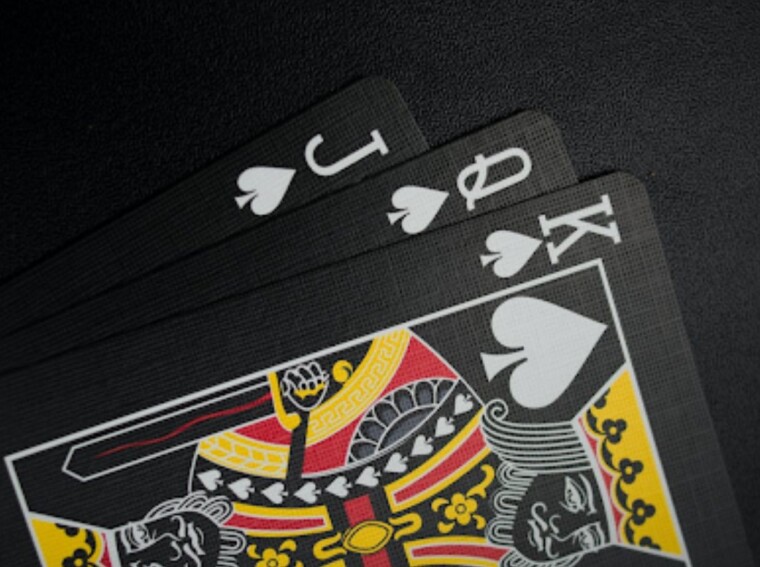Poker, whether you play it online or at a real table, is renowned as an easy game to understand but a hard one to master. Its many intricacies and subtleties make it very enjoyable to experts, yet it can easily deter beginners.
Thankfully, if you decide to play online poker in South Africa, there are essential strategies you can learn to get started confidently. Today, we’ll share some of these techniques with you to help start your poker journey.
The 8 Poker Strategies Every Beginner Should Master
Learning Bankroll Management
Outside of the basic rules of poker, the game is also about how you handle your money. Even professional poker players can keep losing. The difference is that they know how to manage their bankroll. Your bankroll should always have a limit you won’t exceed when playing, so you start going down a bad road.
Moreover, the bankroll you use to play should always be constituted of money you don’t need to live. This will help you avoid difficult situations and keep the game healthy.
Know When To Fold
Knowing when to fold is as vital as knowing when to bet. Many beginners struggle with letting go of a hand, especially after investing chips. There’s a lot of ego, and sometimes you want to push, but it’s usually what causes the most considerable losses. Folding at the right time is a strategic move, especially if you know the odds are against you. Don’t see it as a sign of weakness; think about the long game.
The Game of Facing Opponents
Poker is not just about the cards; it’s about the players. Developing the ability to read your opponents can give you a significant edge. Pay attention to their betting patterns, body language, and any deviations from their usual behaviour. Look for tells that reveal the strength or weakness of their hands. The more you observe, the better you can make informed decisions at the table.

The Art Of Patience
Patience is the most important quality you need in poker. It’s easy to get antsy and make rash decisions, especially during a losing streak. However, patience allows you to wait for the right opportunities and avoid unnecessary risks. Keep your emotions in check, stick to your strategy, and trust the process. Over time, patience will become your ally in navigating the game’s complexities.
Bluffing Wisely
Bluffing is a crucial element of poker strategy, but it should be done purposefully. Random bluffs can be costly, so pick your spots wisely. Consider your opponent’s tendencies and the board texture. Bluff when the situation allows for it, such as when there are potential draws or when your opponent has shown weakness. A well-timed bluff can shake up the dynamics of the game.
Adjusting Bet Size Accordingly
Many players underestimate the power of proper bet sizing. Your bets should convey information to your opponents while protecting your stack. A common mistake is betting too small, giving opponents favourable odds to draw. Conversely, over-betting can scare away opponents, limiting your potential winnings. Strive for balance and adjust your bet sizes based on the situation and your opponents.
Learn To Read Your Own Hand
The foundation of any poker strategy lies in the cards you choose to play. Novice players often make the mistake of playing too many hands, leading to unnecessary losses. Focus on quality over quantity. Start with premium hands like high pairs (e.g., AA, KK) and robust connectors (e.g., 10-J suited). As you gain experience, you can gradually expand your range, but discipline in starting hand selection is critical.

Avoid High Stakes Tables
When you’re just starting, it’s better to avoid high-stakes tables. These tables require you to bet a lot of money, and you’ll face highly experienced players. Entering one of these tables without the necessary skills is asking you to get stripped of your money.
It’s better to stick to low-stakes tables in the beginning, which gives you more playtime, and you’ll learn to recognise other players’ patterns more easily. With smaller bets, mistakes are less endangering, and you have the luxury of attempting the craziest moves to see what works and what doesn’t.
Poker Is A Game You Need To Master Over Time
Even though there are geniuses who made careers in poker very easy, let’s be honest: most players have years of experience behind them. It’s not a game you can master in a short period or nail with only your instincts. They play a big part in winning, but there’s an element of randomness and skills that you need to develop to have truly interesting game sessions.
So, if you’re just starting, don’t despair; apply these strategies, learn the basics, and watch how the best players act to improve. It won’t happen in a day, but you’ll likely see improvements over time.

